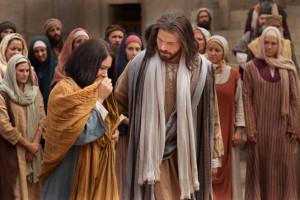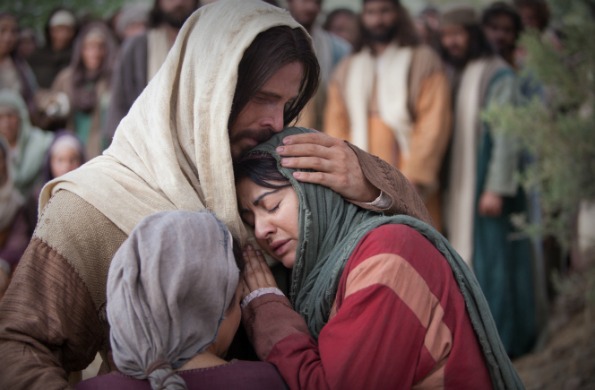A few months after I became a member of The Church of Jesus Christ of Latter-day Saints, whose members are sometimes called Mormons, my friend told me she wanted to commit suicide. We were teenagers and she was not Mormon and didn’t want to talk to a school counselor or anyone else. I spent hours trying to talk her out of it, but that night, after promising me she wouldn’t, she went home and killed herself.
For many months, I struggled to understand what had happened and to forgive myself for what I saw as my failure to save her. I had been caught off guard and hadn’t known what to do. Why didn’t I drag her to the counselor’s office? Why didn’t I tell someone older? But most importantly…what was going to happen to her now?
 As a new Mormon, I didn’t have the answer to that question and, since the Internet didn’t exist, I didn’t have an easy way to find out. Eventually, I was able to bring myself to talk to someone about it.
As a new Mormon, I didn’t have the answer to that question and, since the Internet didn’t exist, I didn’t have an easy way to find out. Eventually, I was able to bring myself to talk to someone about it.
I learned to forgive myself, but I also learned a great deal about suicide. I wanted to know what to do next time. I also wanted to understand how God views suicide.
LDS.org, the official website for Mormons, states on a page about suicide:
Although it is wrong to take one’s own life, a person who commits suicide may not be responsible for his or her acts. Only God can judge such a matter.
The page leads readers to a sermon given by a Mormon apostle, Elder M. Russell Ballard. Elder Ballard spoke on suicide at a conference of the Church in 1987. He commented that many Mormons misunderstand the teachings of the Church on this subject.
Some believe anyone who commits suicide is automatically forfeiting any possibility of eternal life with God. Elder Ballard quoted some earlier church sermons that are the basis for this mistaken belief. However, doctrinal teachings must be taken in context with all other principles of the gospel, and complex topics are not easily addressed in brief quotes.
It is a terrible criminal act for a person to go out and shorten his life by suicide,” he said. (Teachings of Spencer W. Kimball, ed. Edward L. Kimball, Salt Lake City: Bookcraft, 1982, p. 187.)
President Kimball’s comment refers to a person who knowingly commits suicide and is fully able to make a rational decision to do so. It is not all the late prophet said on that subject, but it is often quoted alone, even though he specifically exempts those who are unable to make a rational choice in his signature book, The Miracle of Forgiveness. A more complete explanation of the complexities of suicide comes from Bruce R. McConkie, who was a Mormon apostle:
Suicide consists in the voluntary and intentional taking of one’s own life, particularly where the person involved is accountable and has a sound mind. … Persons subject to great stresses may lose control of themselves and become mentally clouded to the point that they are no longer accountable for their acts.
Such are not to be condemned for taking their own lives. It should also be remembered that judgment is the Lord’s; He knows the thoughts, intents, and abilities of men; and He in His infinite wisdom will make all things right in due course. (Mormon Doctrine, Salt Lake City: Bookcraft, 1966, p. 771.)
In other words, we cannot pass judgment on the final state of anyone who commits suicide because we don’t know the personal details of a person’s mind and heart. Only God knows that and only He can decide. Elder Ballard suggests that the judgment will not be as simple as people think it will be.
God does not have a book that says, “Murder—this type of punishment regardless of the circumstances.” He will perfectly evaluate each person’s heart and mind to understand the true nature, intent, and ability of a person to keep a commandment.
Elder Ballard said:
Suicide is a sin—a very serious one, yet the Lord will not judge the person who commits that sin strictly by the act itself. The Lord will look at that person’s circumstances and the degree of his accountability at the time of the act. Of course, this gives us no reason to excuse ourselves in committing sins, nor will the Lord excuse us, if I understand correctly.
We must constantly strive to do our best in emulating the Savior in every aspect of our lives. At the same time, however, let us remember that spiritual growth comes “line upon line,” that the key—in the spirit world as well as in mortality—is to keep progressing along the right path.
 The atonement of Jesus Christ makes it possible for us to hold out hope for ourselves and for others. Jesus came to earth to voluntarily atone for our sins—for each of us individually. Because of this gift, it is possible to overcome sin if we fully repent and pay the price for our mistakes in life and that means that we shouldn’t give up our hope for those who have killed themselves.
The atonement of Jesus Christ makes it possible for us to hold out hope for ourselves and for others. Jesus came to earth to voluntarily atone for our sins—for each of us individually. Because of this gift, it is possible to overcome sin if we fully repent and pay the price for our mistakes in life and that means that we shouldn’t give up our hope for those who have killed themselves.
There may be a price to pay if they did so voluntarily and knowingly, but we don’t know what that price is. What we do know is that God is perfectly loving and fair. Whatever He does will be exactly right, and so we can trust Him to make the right decisions for us. Final judgment is God’s alone.
Many people facing trials who are still able to think through their options completely find hope through the atonement that allows them to move forward in their lives and to make the changes necessary to resolve their problems.
We should not underestimate or overlook the power of the Lord’s tender mercies. The simpleness, the sweetness, and the constancy of the tender mercies of the Lord will do much to fortify and protect us in the troubled times in which we do now and will yet live.
When words cannot provide the solace we need or express the joy we feel, when it is simply futile to attempt to explain that which is unexplainable, when logic and reason cannot yield adequate understanding about the injustices and inequities of life, when mortal experience and evaluation are insufficient to produce a desired outcome, and when it seems that perhaps we are so totally alone, truly we are blessed by the tender mercies of the Lord and made mighty even unto the power of deliverance (see 1 Nephi 1:20).
Some individuals who hear or read this message erroneously may discount or dismiss in their personal lives the availability of the tender mercies of the Lord. . . We may falsely think that such blessings and gifts are reserved for other people who appear to be more righteous or who serve in visible Church callings.
I testify that the tender mercies of the Lord are available to all of us and that the Redeemer of Israel is eager to bestow such gifts upon us” (in Conference Report, Apr. 2005, 106–7; or Ensign, May 2005, 100–101).
 The atonement is not just for perfect people or for those who are fairly righteous. It is for everyone. Even if we’ve turned our backs on God in the past and fallen far, far short of His commandments, He is still there for us. God wants us to come to Him in all our imperfections, to admit that we can’t do it ourselves, and to allow the atonement into our hearts.
The atonement is not just for perfect people or for those who are fairly righteous. It is for everyone. Even if we’ve turned our backs on God in the past and fallen far, far short of His commandments, He is still there for us. God wants us to come to Him in all our imperfections, to admit that we can’t do it ourselves, and to allow the atonement into our hearts.
When we accept that the atonement is for us, we can move forward, be forgiven, and bring our lives in line with God’s teachings. We can find the peace that lets us live, even under the most difficult of circumstances.
If you are considering suicide, I urge you to talk to someone. The LDS church even has two web sites dedicated to suicide prevention. The first is Suicide Prevention and Ministering and the second is Choosing to Live: Overcoming Suicidal Thoughts. Remember you are stronger than your challenges. And that you are never alone. Your loving Heavenly Father wants to help you. If you need to talk to someone now, the National Suicide Prevention Lifeline is always open. 1-800-273-8255.
About Terrie Lynn Bittner
The late Terrie Lynn Bittner—beloved wife, mother, grandmother, and friend—was the author of two homeschooling books and numerous articles, including several that appeared in Latter-day Saint magazines. She became a member of the Church at the age of 17 and began sharing her faith online in 1992.






First of all, I am not a Mormon…..but my “so called” friend is. I wondered what the belief of this church is on this – I am suffering so much. I mentioned suicide to her several months ago – first I DO NOT want to die – I believe it is a great sin…but I have been through so very much in the last few years that sometimes it crosses my mind. When I mentioned it to her, she laughed at me and rolled her eyes. It hurt me so much….she could care less. She treats me as if I’m dirt on her shoes – at one point I asked her a lot of questions about her church – mind you – we have been friends for over 40 years. When she was younger we used to discuss so many things but now she tells me that “I’m NOTHING, and never will be” – it is so very hard for me to understand how she teaches and is a leader of young women in her church when she is so very cruel to so many people. I asked her one day if she thought she should talk to someone about her terrible moods and anger inside her and she told me “I can’t let them know”…..if I was going to ever think of joining your church knowing her would send me running! She has friends that she would have NEVER had years ago – they drink, smoke and smoke dope….she doesn’t but they all gossip and she loves to be “in the know” so to speak. I guess your church is ok with this…..but it is very hurtful to be treated as if I’m dirt – I’ve been through some horrific losses in my family in the last few years – and I don’t deserve that. But, she treats most of her own family the same way – anyone who mentions suicide, even if it’s just a passing thought doesn’t deserve to be laughed at. I hope and pray someday that someone in your church has a talk to her and lets her know that is very mean. Thank you for listening…..and please keep me in your prayers. I’m sure I will be fine, even though I’m not a Mormon – I am NOT NOTHING as she seems to believe….I know God loves me and is there for me.
Lynn, Thank you for your comment. I am glad you’ve decided suicide is not an option for you. I hope you can find the support you need to work through your challenges.
As for your friend, of course, the church is never okay with treating others badly. We’re taught consistently by our leaders the importance of treating others with love and respect and the value of each person as a child of God. However, all we can do is to teach. It is up to each person to decide what to do with what he or she is taught. Agency is an essential part of our life on earth and God has to let us make choices and face the consequences.
It sounds like your friend is having her own emotional struggles right now and people often begin to live in a way that does not reflect their divine heritage when that happens. Our church offers professional counseling services to those who need them–and will help cover the costs if the person can’t afford them–but again, the person has to ask her church leader for help. That is not always easy for a person to do and it is why leaders speak on the same subjects again and again, hoping someone will hear the message at a critical moment.
There are two articles I would love to have you read. The first was written by one of our bloggers here about what happened when her college roommate became suicidal. This is a more appropriate response than the one your friend gave you.
http://ldsblogs.com/23526/ugly-side-beauty
The second is a talk (sermon) given by a very high ranking church leader on personal worth. In it he says, “God sees you not only as a mortal being on a small planet who lives for a brief season—He sees you as His child. He sees you as the being you are capable and designed to become. He wants you to know that you matter to Him.”
https://www.lds.org/general-conference/2011/10/you-matter-to-him?lang=eng&query=personal+worth
Please don’t judge all Mormons by the one you know. I suspect she is fighting her own battles just now and isn’t being herself. I hope you can be a good influence on her and help her to remember she is eternal, not just mortal. There are many resources within her own faith that can help her remember who she is and to become that person again.
Thank you for your thoughtful article on Suicide. My nephew was taken off life support and died this morning, one week after attempting suicide. Our daughter asked whether her cousin’s act was a sin, and what hope she could have for his salvation. From experience, I knew some of what you posted and assured her that suicide was not automatically murder. My nephew was distraught and despite his amazing exterior self (4.0 + student, gifted athlete, popular and handsome) depression and anxiety dogged him and his suffering was immense. Whether he was in his right mind and fully accountable is a question for God who knows our hearts. The Plan of Salvation still provides for salvation and exaltation as far as my searching can determine. Your blog was helpful in explaining these things to our daughter.
Gracias for sharing your sharing your experience and for your article. A sweet friend of my son, decided to go back before we were expecting. It was hard to break the news to my son, who is serving a mission. Even that a never met this sweet daughter of God in person, a feel love and compassion for her and her family who still searching for answers. Your article brought peace to my heart and reassurance that God is the only one that knows our heart.
I am a member of the LDS church, note I’m just 15, so In 2017 I just started high school. I thought it was all fun and games, besides all the bad temptations like cursing and such, but i honestly hadn’t been exposed to some of the horrors of the real world (I thank the Lord that I’ve been spared most my life up to now). I had a best friend, Jesse, and one day he did not show up to school. Later that day I found out he had committed suicide and I was devastated. But a few things revolving around the gospel helped me, and they can help other people too.
The first thing is, of course, the Holy Ghost. He was and still is the comforter that I need during trials. Another is prayer. Two days after he passed a group of his friends got together, including me, and we hung out. Later that day the parents of us teenagers rounded us up and talked to us, giving us support. One of the moms said we would have a little prayer service and asked if anyone would like to volunteer to go first. After a moment of awkward silence, I said I would. That was probably the most sincere, heart felt prayer I have ever given. But it eased the pain, just a bit.
Something that comes out of a loved ones passing is your testimony grows. I had always loved the church but now it seems as though I’ve matured greatly. My knowledge and love of the gospel has deepened extremely.
I guess that I would just like to say that yeah losing someone is hard but it’s not the end. And if you ever need someone to talk to you can go to the Lord.
So beautifully said Jacob. Thank you.
What am I to think when my bishop says, “*Kelli hears what she wants to hear,” when my therapist told him I was suicidal?
Hi Kelli, I am disappointed at your Bishop’s response. Unfortunately the Lord only has humans to work with in doing His work. I’d say this is one of those times that you will need to turn to Him directly for answers, and try to forgive a painfully human Bishop. Work with your parents and therapists, make friends who know and understand you. And remember how much you are loved by the Lord. You have a wonderful future ahead of you, please don’t let one frail human make that future seem bleak because it’s not. President Monson once said “Your future is as bright as your faith.” And that my dear, is encouraging news, because God is on your side and wants you to succeed more than anything.
Good website! I truly love how it is simple on my eyes and the data are well written. I’m wondering how I could be notified whenever a
new post has been made. I have subscribed to your RSS which
must do the trick! Have a great day!
Thank you so much for this sweet compliment! You can subscribe to our feed and follow us on Facebook (we always post new content there), but you can also simply check our website each day! We put up new posts every day by 9:00 am MST.